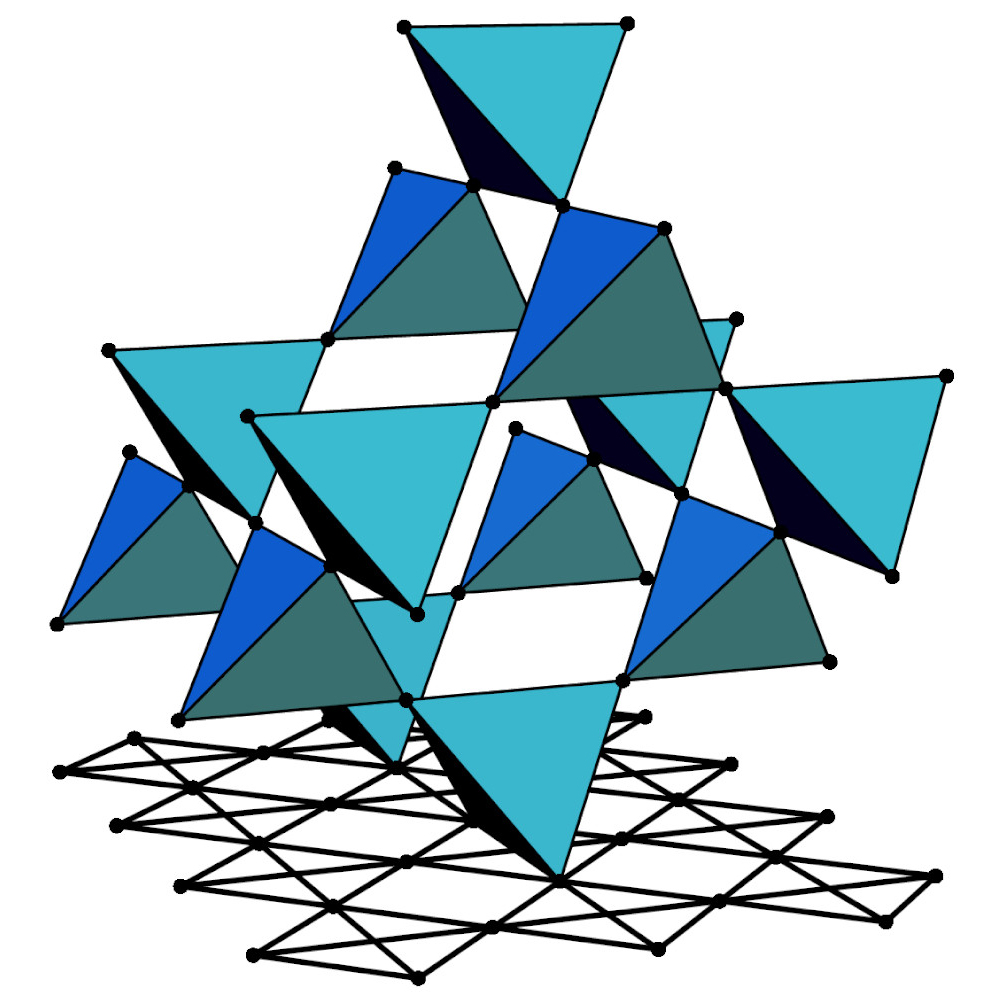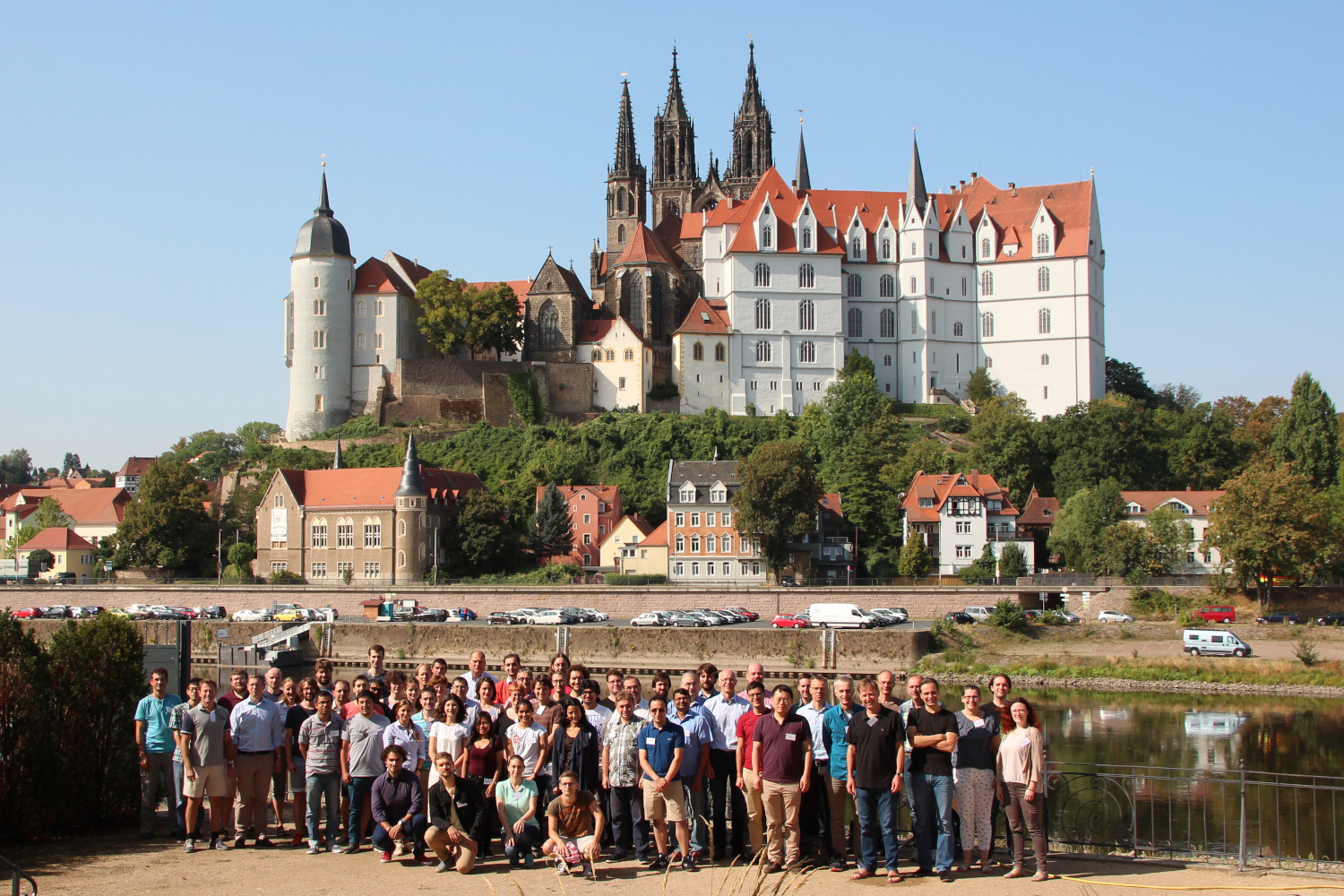Topology: A Revolution for Physics Third funding period approved for Collaborative Research Centre 1143
The Collaborative Research Centre (SFB) 1143 “Correlated Magnetism: From Frustration to Topology”, in which the Solid-State Theory Division at the Institute for Theoretical Physics (ITP) at Technische Universität Braunschweig is also involved with a sub-project, will also be supported by the German Research Foundation (DFG) in a third funding period. A total of 10.5 million euros will be available to the SFB 1143 from 2023 to 2026.

The pyrochlore lattice, a breeding ground for spin ice, quantum spin ice and emergent elementary particles, is the logo of SFB 1143. Image credit: Wolfram Brenig/TU Braunschweig
“Physics in the 21st century is undergoing a revolution. Topology as a mathematical concept, together with the quantum physics of many interacting particles, is in the process of fundamentally changing the understanding of nature. While quantum physics alone may still seem puzzling today, its topological revolution has allowed fundamental physics research to make groundbreaking discoveries in recent years,” explains Professor Wolfram Brenig from the ITP and head of the subproject “Transport, excitations, and criticality in frustrated quantum magnets”. Together with colleagues from Dresden and Berlin, he is investigating topological and related phases of matter.
What is revolutionary about topology?
Topological solid-state physics is still a comparatively young field of basic research and is therefore still full of surprises and unexpected discoveries. On the one hand, it is also about the search for phenomena that form the basis of modern technologies, and on the other hand, it is about recognising fundamental principles according to which the world around us is organised: In contrast to the previous understanding of physics, order in solid bodies cannot only arise through a regular lattice of atoms – as in table salt – but through the fact that their quantum physical properties adapt to the topology of the space surrounding them. Topology therefore represents a recent and important extension of these organisational principles.
Based on these findings, new applications can subsequently be created for modern technologies, materials or artificial intelligence. One conceivable field of application is future quantum computers.
The SFB 1143
The Collaborative Research Centre 1143 “Correlated Magnetism: From Frustration to Topology” with 21 subprojects was founded in 2015 and will enter its third funding phase in 2023. The SFB is dedicated to a large class of magnets in which competing, i.e. frustrated, interactions prevent the formation of conventional magnetic order. Instead, they lead to a variety of alternative and non-trivial phenomena that are often topological in nature. The aim of the SFB is to identify, fabricate and understand materials in which such phenomena can be observed.

Thanks to SFB 1143, the Institute for Theoretical Physics at TU Braunschweig is closely networked with the Dresden research landscape. A total of more than 130 researchers are involved in the Collaborative Research Centre in 21 sub-projects. Here the team stands in front of Albrechtsburg Meissen. Photo credit: Kerstin Brankatschk/TU Dresden
The spokesperson for SFB 1143 is Matthias Vojta, Professor of Theoretical Solid State Physics at Technische Universität Dresden. In addition to Technische Universität Braunschweig, the two Dresden Max Planck Institutes for “Physics of Complex Systems” and for “Chemical Physics of Solids”, the Leibniz Institute for Solid State and Materials Research Dresden, the Helmholtz Centre Dresden-Rossendorf and Technische Universität Berlin are also involved.
